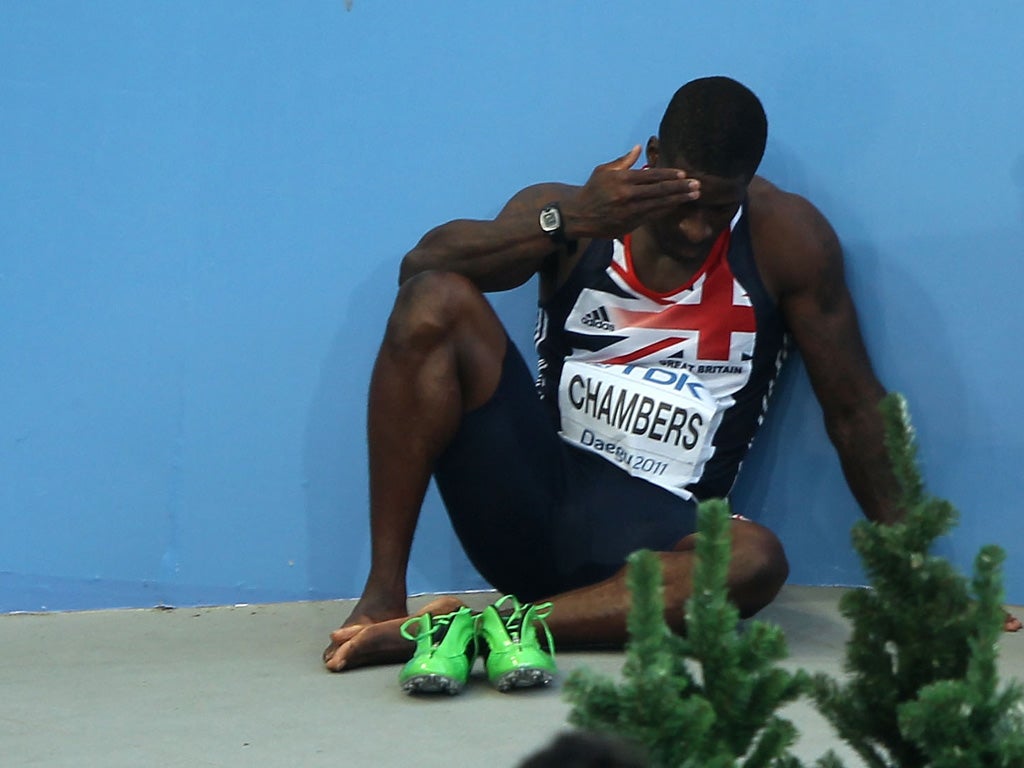
Your support helps us to tell the story
From reproductive rights to climate change to Big Tech, The Independent is on the ground when the story is developing. Whether it's investigating the financials of Elon Musk's pro-Trump PAC or producing our latest documentary, 'The A Word', which shines a light on the American women fighting for reproductive rights, we know how important it is to parse out the facts from the messaging.
At such a critical moment in US history, we need reporters on the ground. Your donation allows us to keep sending journalists to speak to both sides of the story.
The Independent is trusted by Americans across the entire political spectrum. And unlike many other quality news outlets, we choose not to lock Americans out of our reporting and analysis with paywalls. We believe quality journalism should be available to everyone, paid for by those who can afford it.
Your support makes all the difference.The British Olympic Association will take the fight to keep their lifetime ban for drugs cheats to the Court of Arbitration for Sport, it was confirmed today.
The BOA are to challenge the decision by the World Anti-Doping Agency (WADA) that the lifetime ban is "non-compliant" with their code.
If the BOA are defeated it means that cyclist David Millar and sprinter Dwain Chambers, who have previously served bans for drugs, will be able to be part of Team GB at the London 2012 Olympics.
BOA chairman Lord Moynihan said: "It is a policy that reflects the culture and character of Team GB. The BOA and British Olympic athletes do not consider that those who have deliberately cheated should represent Great Britain at the Olympic Games."
Two QCs, Lord David Pannick and Adam Lewis, will represent the BOA.
Both the BOA and WADA are seeking for CAS to make a decision before the end of April 2012.
The presence of the heavyweight legal team reflects the challenge the BOA are facing. The CAS came out against a similar IOC rule, where serious doping offenders missed the next Olympics, in October and many Olympic figures believe the BOA are up against it.
Lewis, who led the Football Association's appeal against Wayne Rooney's three-match European ban last week, and Pannick will be joined by a third lawyer, Tom Cassels of Baker & McKenzie.
The BOA's appeal argues that the lifetime ban is an issue about being eligible for Team GB and is not an extra sanction for a doping offence.
The BOA said in a statement the appeals submission also underlines that: "The presence of athletes who deliberately cheat within Team GB would damage team morale, atmosphere and cohesiveness.
"It would also damage the credibility and reputation of the team in the eyes of the athletes and the public, and would send the wrong message to aspiring Olympians and new entrants to Olympic sport - particularly young people.
"Further, an athlete who deliberately cheats should not take the place in Team GB of a clean athlete."
The BOA say the by-law has enjoyed the support of more than 90% of British athletes since it was brought in back in 1992.
Moynihan added: "The BOA selection policy is a direct expression of the commitment British athletes have made to uphold the values of fair play, integrity and clean competition - values that are at the heart of Olympic sport.
"The BOA and British Olympic athletes do not consider that those who have deliberately cheated should represent Great Britain at the Olympic Games."
PA
Join our commenting forum
Join thought-provoking conversations, follow other Independent readers and see their replies
0Comments